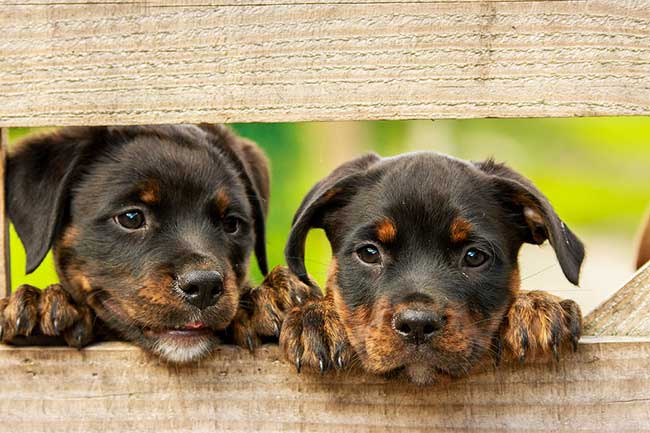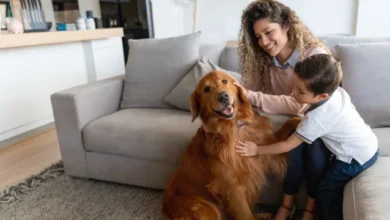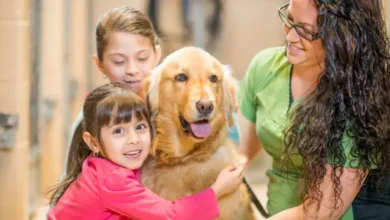
Getting a puppy is a euphoric feeling. Whether you get a small dog known to be docile or a large dog with hyperactive tendencies, all puppies have more energy in the first few years of their lives. In addition, even well-trained puppies are bound to make mistakes throughout their youngest years. As you are going to adopt a dog, it is important that you remember a few important things.
Read More:
- 3 Amazing Scent Games for Your Dog
- What Should You Ask a Dog Boarder?
- An Expert Guide to Buying Your First Dog Crate
- Top 20 Best Dog Food Brands – A Comprehensive Review
- Canidae Dog Food Review – Dog Food Advisor of Petdogplanet
1. What is a “puppy stage” and why does it happen?
There are five steps that typically occur as a dog goes through their “puppy stage.” First, an animal is born and begins adjusting to its world. At this time, they stay close to their mother and use their senses to learn about their surroundings since their eyes are not yet open. After four weeks, a dog begins to integrate more movement in their day. In this time, they get more active, begin to open their eyes and develop a subtle bark.
After two months, a dog spends their energy learning how to engage with other animals and humans. You begin to see their personality and demeanor throughout the day during this time. It is important that puppies have space to get out their energy, engage in training, and socialize during this time frame. After three months, you may notice that your pet begins increasing their boldness and exploring their environment more aggressively. Dogs in this phase seem to forget portions of their training. Before their first birthday, most dogs go through puberty and reach their full size.
As pets go through their puppy stage, it is important to continue their training and discipline them properly so appropriate behaviors are reinforced.
2. Why Should I Crate Train My Dog?
If you want to have a well-trained dog that can behave predictably even when they are being boarded, it is important to crate-train your dog from a young age. The majority of professionals in the industry suggest that this type of training is beneficial for both the owner and the pet. Ideally, a dog will learn to view its crate as a safe place. When your pet knows that it has a safe place to rest and retreat, it will learn to love being in its crate.
If you plan to board your dog or leave town on occasion, crate training will help your dog feel comfortable no matter what environment they are in. In addition, this practice supplements other parts of their training including housebreaking them. Whether you have a small breed or a large breed, every animal craves comfortability and safety. Dogs of all ages and sizes benefit from this behavior.
3. What Are the Key Things to Know About Training My Dog?
Before you begin training your dog, it is important to realize that patience is critical. There are parts of the training process that will make it feel like you are taking one step forward and two steps back. Being patient will show your dog the importance of consistency and diligence.
Secondly, start with small tricks and work into more complex behaviors. When puppies are young, they have higher energy levels and shortened attention spans. You can gradually work into more impressive behaviors by teaching them easy and simple tricks that they can catch on to.
Thirdly, stay prompt. When you first bring your puppy home, you may be smitten. Rather than skipping training sessions and allowing your puppy to run the home, it is important that you immediately begin implementing training techniques for them to follow.
Lastly, don’t be afraid to ask for help. Some animals are more difficult to train than others. If it seems impossible to train your dog to do certain things, send it to a professional that knows how to train even the most difficult pets. You can send them to www.careytrainsme.com who provides a boarding and training package, and who has a lot of experience dealing with dogs that have behavioural issues.
4. What Do I Need to Know Before Bringing a New Pet Home?
Before bringing a pet home, it is important to have guidelines in place that will keep your animal safe once they arrive. For example, if you have a fenced in yard, it is important to make sure there are no holes or gaps that the pet could escape through.
Many people underestimate the expenses that they incur once they become pet owners. Soon after your puppy comes home, you will need to take it to get a checkup so that it can receive its second round of vaccinations. In addition, you want to ensure that you stock up on the same type of food that the dog has been eating for the first few weeks of their life. If you decide that you want to serve the dog a different type of food, it is important that you introduce the new food gradually. If you suddenly serve a different type of food, your pet will likely get very sick.
It is important to stock up on a few supplies before your puppy comes home. First, you will want to invest in a crate that your dog will sleep in. Within the crate, place a comfortable dog bed that your puppy can rest on. Other important purchases include a food bowl, collar, leash, and toys.
Puppies are not able to be boarded until they are fully vaccinated. Before getting a pet, make sure to examine your schedule and ensure that you are able to take care of the dog without boarding during the first few weeks that they come home. Another option to consider is dog daycare. It is important to find a reliable facility that is able to give your dog the space and exercise they need.
If you are not a person with a routine, a puppy will be great for you. Puppies crave routines and thrive when they are able to have a predictable schedule in a recognizable environment. By creating a schedule that you can stick to, your pet will more quickly adapt to the new training techniques that they are learning.
Summary
Although getting a dog is incredibly exciting, it is a big undertaking. Before you make this commitment, it is important to take a financial and social examination to make sure that you have the time and money to properly care for a pet. After your puppy comes home, get into a routine that supports their development and allows them to feel safe. As your pet journeys through the “puppy stage,” make sure to continue consistent training.




